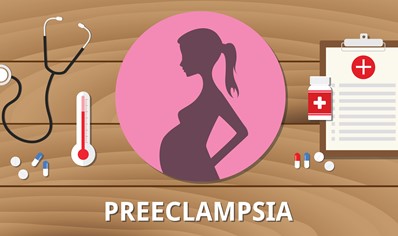
7 Tips for Breastfeeding Success
March 27, 2025
Breastfeeding is an important way to help your baby start life on a healthy note. Breastmilk includes nutrients and antibodies that help reduce the baby’s risk of illness – including ear infections, breathing problems, asthma, diabetes, obesity, and sudden unexplained death in infancy, also known as sudden infant death syndrome (SIDS). Breastmilk is also easier for babies to digest, which can help prevent diarrhea and other stomach problems.
Breastfeeding is good for moms, too! It helps burn calories, which can make it easier to lose some of that pregnancy weight. It also can lower a mother’s risk of conditions like arthritis, diabetes, heart disease, and even some cancers. Plus, breastfeeding releases hormones that help you feel calmer – always a good thing for busy moms!
Breastfeeding can seem intimidating, but it doesn’t have to be! Keep these tips in mind as you’re getting started, and be sure to ask your provider if you have any questions or concerns.
-
Take a class to get prepared.
A prenatal breastfeeding class is a great place to learn as much as you can before your baby arrives. Wondering where to start? Try an in-person class with experts from Parkland Healthy Start or another organization near you. If attending in person doesn’t work for your schedule, look for online options. (For example, Texas WIC offers live classes, along with additional breastfeeding resources, on their website.)
-
Start with skin-to-skin contact after delivery.
Skin-to-skin contact is an important part of breastfeeding. It can help you bond with your baby, especially right after they are born. It can also help your body to produce more milk.
-
Try to reduce your stress level.
If you have high levels of stress, your baby will be able to tell – and that could make it harder to breastfeed. Make sure you’re eating healthy and drinking plenty of fluids (avoid sugary drinks and caffeine). Try to get as much sleep as you can, and get some light exercise if it’s okay with your doctor.
-
Work with your baby’s schedule.
Some moms worry that they won’t have enough milk to feed their baby. The good news is that babies only need small amounts of milk at each feeding. Watch your baby and look for signs that they’re feeling hungry – they might make sucking motions, put their hands or fists in their mouth, or turn their head to look for your breast. It is normal for babies to have eight to 10 feedings in a 24-hour period.
-
Sleep in the same room as your baby.
Your baby should sleep in the same room as you (but not in the same bed) for their first 6 months. This will make it easier to breastfeed at night and can even help reduce the risk of SIDS.
-
If breastfeeding is painful, talk to your doctor.
Breastfeeding is not supposed to hurt! If you experience pain, such as sore or cracked nipples or engorged (swollen) breasts, talk to your doctor or a lactation consultant.
-
Give yourself a break!
It can take some practice to get comfortable with breastfeeding. Don’t be too hard on yourself if you have trouble at first. Talk to a doctor, nurse, or lactation consultant to get the support and resources you need.
PCHP Members: Get a breast pump at no cost!
Learn more here: https://parklandhealthplan.com/living-well/blog/articles/member-benefits-spotlight-breast-pumps-for-new-moms/



